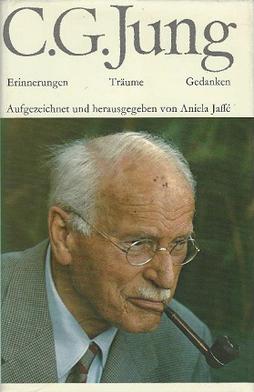 As I've mentioned before elsewhere, I used to put great stock in the analytical psychology of Carl Jung. And, truly, in terms of getting to know one's personal unconscious issues, a Jungian analyst is as good as one of any other modality.
As I've mentioned before elsewhere, I used to put great stock in the analytical psychology of Carl Jung. And, truly, in terms of getting to know one's personal unconscious issues, a Jungian analyst is as good as one of any other modality.Where I've quibbled with Jung, strictly as an unprofessional mind you, is with his so-called "collective unconscious." This is where, for Jung, the archetypes abide which form the basis of one's "complexes". Archetypes act as though they each had their own consciousness, if you will allow; their own willfulness. Dig deep enough with your analyst, and you will arrive in the presence of the archetype which (or who) forms the kernel of your complex.
Balderdash, right? Former president of the C. G. Jung Foundation, Jeffrey Burke Satinover, has done outstanding work deconstructed the "collective unconscious" of Jung and showing its direct relation to paganism.
But, in my opinion, Jung's system still does yeoman's work describing the inner life and outer manifestations of the human mind in human culture. Yes, it is pagan; so is René Girard's unregenerate cultural template, the "primitive sacred." And, unlike Freud, Jung recognizes the collective nature of the psyche in his analytical psychology, albeit in a metaphysical way quite alien to Girard's mimetic theory.
The thing is, both seem helpful to understanding the dilemmas of the modern crisis. Girard lays bare the mimetic nature of unredeemed human culture, stripping us of the illusion of the autonomous self; Jung describes the uncanny similarity and power of inner thoughts, images, and motivations among all peoples, religions, and ethnic groups undetectable to the scrutiny of the anthropologist but quite predictable and recognizable to the inner eye of the analyst.
For example: Jung's system would see Loki in Norse myth as a depiction of the "trickster" archetype. This archetype, one could observe, has as little concern for the welfare of humans as concern for Balder. This trickster archetype one might say has been working deviously, nefariously, for decades among human cultures - unrecognized, unheralded, ignored by a reductionist race of beings who cast out the baby of allowing for such powerful influences with the bath water of supernaturalism. Like an imp at the basis of such thinking and behaving as "free love" and Lesbian/Gay/Bisexual/Trans gnosticism, the trickster archetype degrades the humanith literally into a degenerate, self-loathing, self-extinction-seeking race of beings.
Like a naughty, little boy, the trickster archetype trashes and then runs away to find new mischief and havoc to raise. Or perhaps Mars strides among "street youths" in a Parisian slum, if you want to analyze another archetype whose monumental presence is ignored but present in today's hazardous world.
Jung, like Girard, still has much to contribute to human awareness and welfare. Even if one doesn't believe in archetypes, one should respect their powerful, illusory (?) influence as Jung described them. Or, as a wiseman once said, just because you don't believe in ghosts doesn't mean you shouldn't or won't be afraid of them walking in the dark.









No comments:
Post a Comment